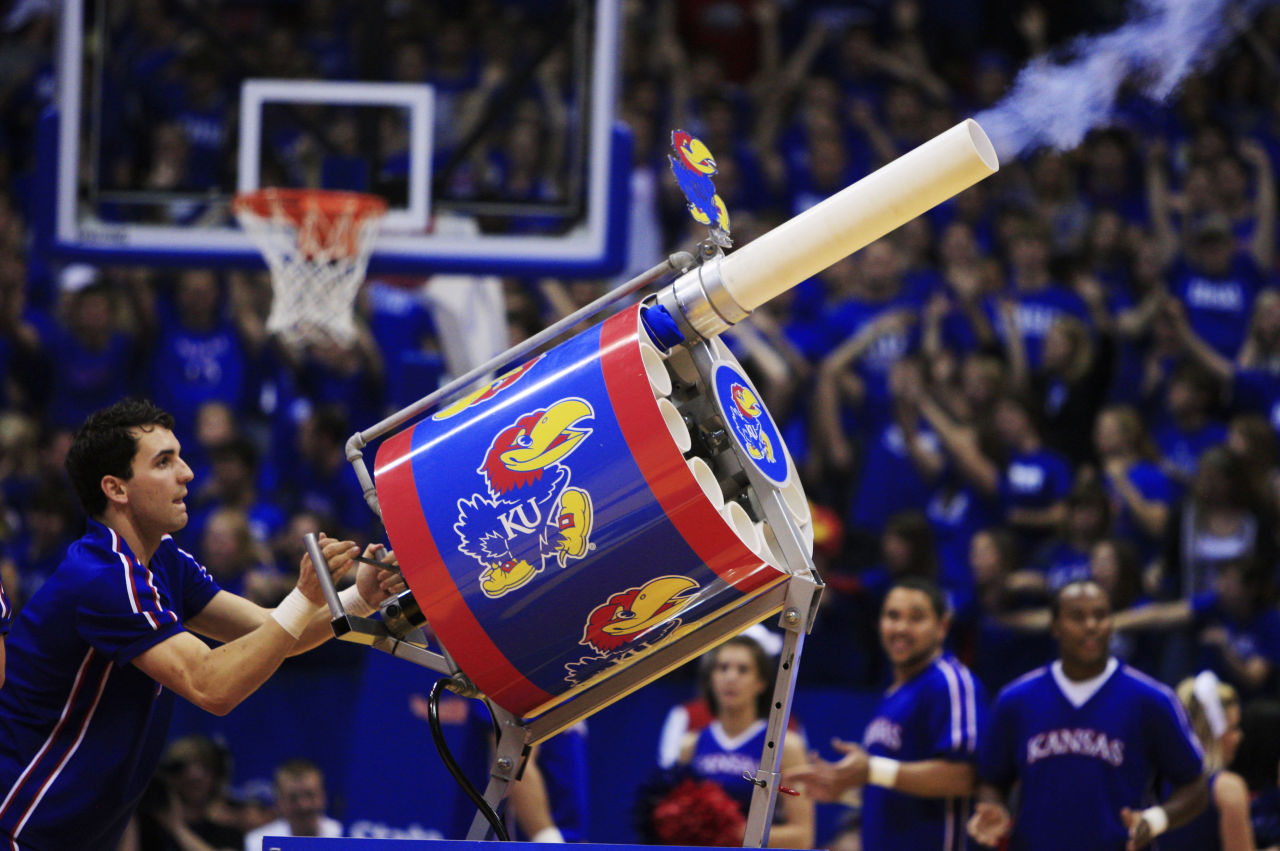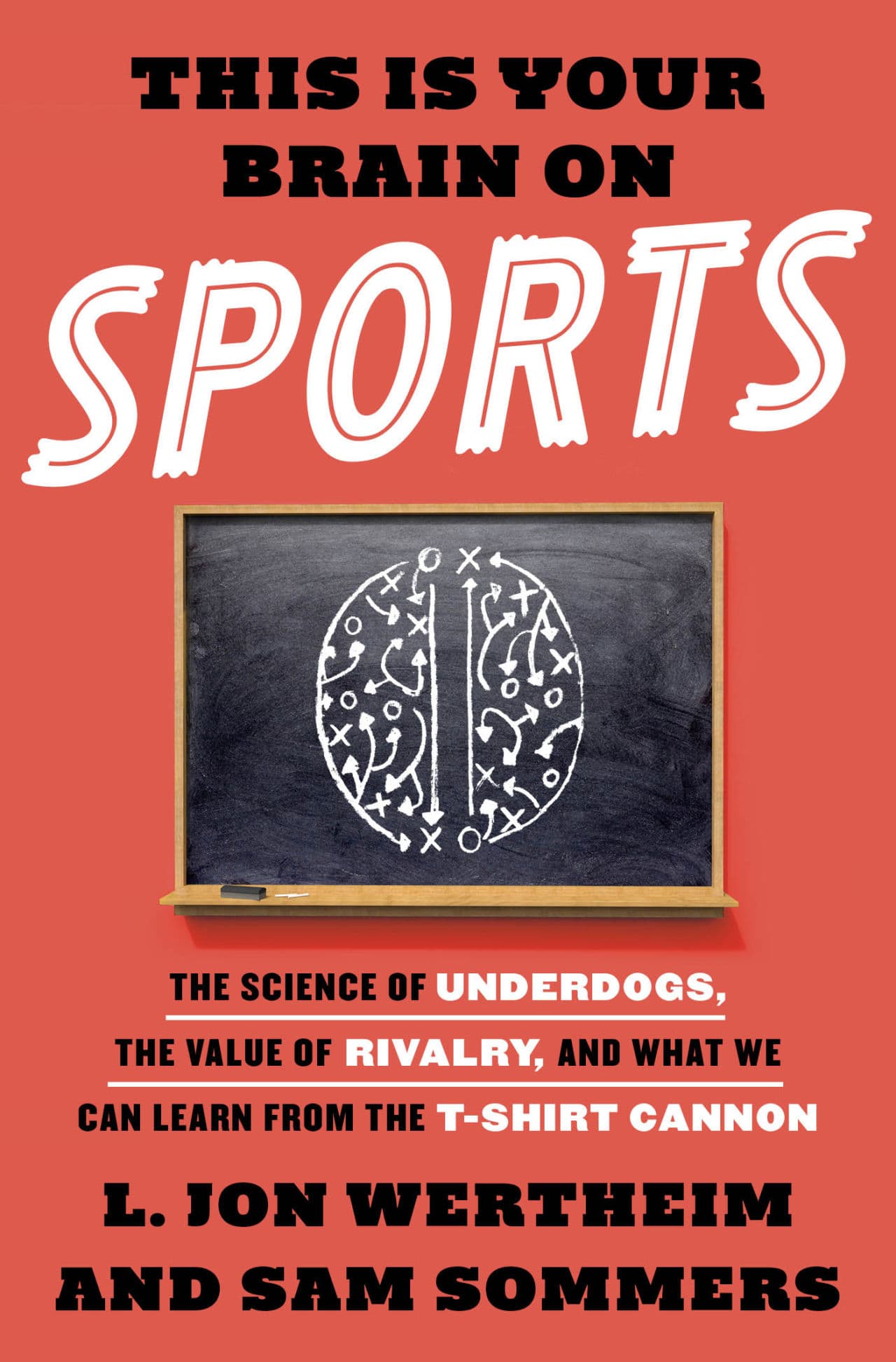Advertisement
'This Is Your Brain On Sports' Looks At The Psychology Of Our Games

What’s behind rooting interest? What makes fans try to distract free throw shooters on opposing basketball teams? And why does free stuff at sporting events seem to make people lose their minds?
Sam Sommers and L. Jon Wertheim turned to psychology and behavioral science to help us understand what motivates sports fans to act as they do. They are the co-authors of "This is Your Brain on Sports: The Science of Underdogs, The Value of Rivalry, and What We Can Learn From the T-Shirt Cannon." Sommers and Wertheim joined Bill Littlefield to discuss their findings.
Highlights From Bill's Conversation With L. Jon Wertheim and Sam Sommers
BL: Jon, tell me what it is about the t-shirt cannon phenomenon and what it taught you about human nature?
 JW: I think we're always mystified. You go to these games and the loudest applause of the night, unfailingly, is for when these cheap, poorly made shirts of indiscriminate size are thrown into the crowd. We were both baffled about why it is that this seems to be such a constant in sport. Sam is an experimental psychologist, and we concluded that, first of all, there is a scarcity effect. If everybody got one at the entrance, they would be less valued. And also, those t-shirts are free, and there is a lot of psychology that tells us that we are completely irrational animals when free is on the line. We will do anything to avoid paying. So, this t-shirt cannon — I think, quite inadvertently, the sports marketers have seized on something that really taps into human psychology and is a wildly effective promotion.
JW: I think we're always mystified. You go to these games and the loudest applause of the night, unfailingly, is for when these cheap, poorly made shirts of indiscriminate size are thrown into the crowd. We were both baffled about why it is that this seems to be such a constant in sport. Sam is an experimental psychologist, and we concluded that, first of all, there is a scarcity effect. If everybody got one at the entrance, they would be less valued. And also, those t-shirts are free, and there is a lot of psychology that tells us that we are completely irrational animals when free is on the line. We will do anything to avoid paying. So, this t-shirt cannon — I think, quite inadvertently, the sports marketers have seized on something that really taps into human psychology and is a wildly effective promotion.BL: Basketball fans have been in the news for creative ways in which they have tried to distract free throw shooters of the opposite team. My favorite was a bunch of guys who pretended to have somebody giving birth behind the basket while somebody was shooting. You've discovered that such high jinks rarely work. Why do they keep doing it, Sam?
SS: We like to have the sense that we are exerting some sort of control over what's going on there in the game. And in life more generally, this notion of standing there idly by and watching is somehow unfulfilling to us. There is this sort of action bias that we have in life to at least do something: "If I'm gonna be there, I should at least do something." And it works for the fans who are waving their thundersticks behind the free throw line. One of the most effective free throw things I've ever seen is just complete silence. That's sort of eerie.
BL: Jon, you begin "This is Your Brain on Sports" by suggesting that, goofy as the behavior of fans is, it’s tempting to figure that, “in the Universe of Sports, the usual rules of behavior and social convention don’t apply.” But, did you discover that that wasn’t true? Or did you know all along that that wasn't true and the whole thing is a set-up?
JW: I'll cop to a bit of a set-up. I think that the premise for the book is that these sort of tropes and these themes and habits in sports, on their face, they're irrational. They don't make sense. And I think a lot of us are comfortable with it because it sort of reinforces this notion that sports are this parallel universe and sports are diversion. And there are all sorts of crazy instances, from the t-shirt canon to the best players making lousy coaches to the effects of rivalry.
[sidebar title="An Excerpt From 'This Is Your Brain On Sports'" width="630" align="right"]Read an excerpt from "This is Your Brain on Sports" by L. Jon Wertheim and Sam Sommers.[/sidebar]And Sam and I really wanted to attack this and say, A: What really are the underpinnings here? It's gotta be deeper than, "Hey, it's just crazy sports." And B: What are the applications beyond sports? What we found is that a lot of this behavior in sports that on its face appears to be irrational is, in fact, perfectly rational and impacts us in our daily life.
BL: Jon, you cover sports for a living. Has your behavior as a fan changed at all as a result of researching and writing the book, and has your rooting interest changed at all?
JW: I'm not sure about rooting interest, Bill, but certainly how I cover this and how I perceive sports. Sports are so funny. I mean, you're right: at some level we're rooting for strangers who happen to be wearing jerseys and laundry that we like. And, in other ways, there's so much wrapped up in sports. It's a way of identifying, it's a way of self-identifying, it's a pretext for our values. How many times do you hear, "Oh, the team is built in the image of the city." And what you realize is that sports have this very unique piece of terrain in the culture and yet really, as Sam says, this is just the same behavior that we ourselves are practicing in a hundred other ways. It's really just human behavior.
This segment aired on February 13, 2016.
